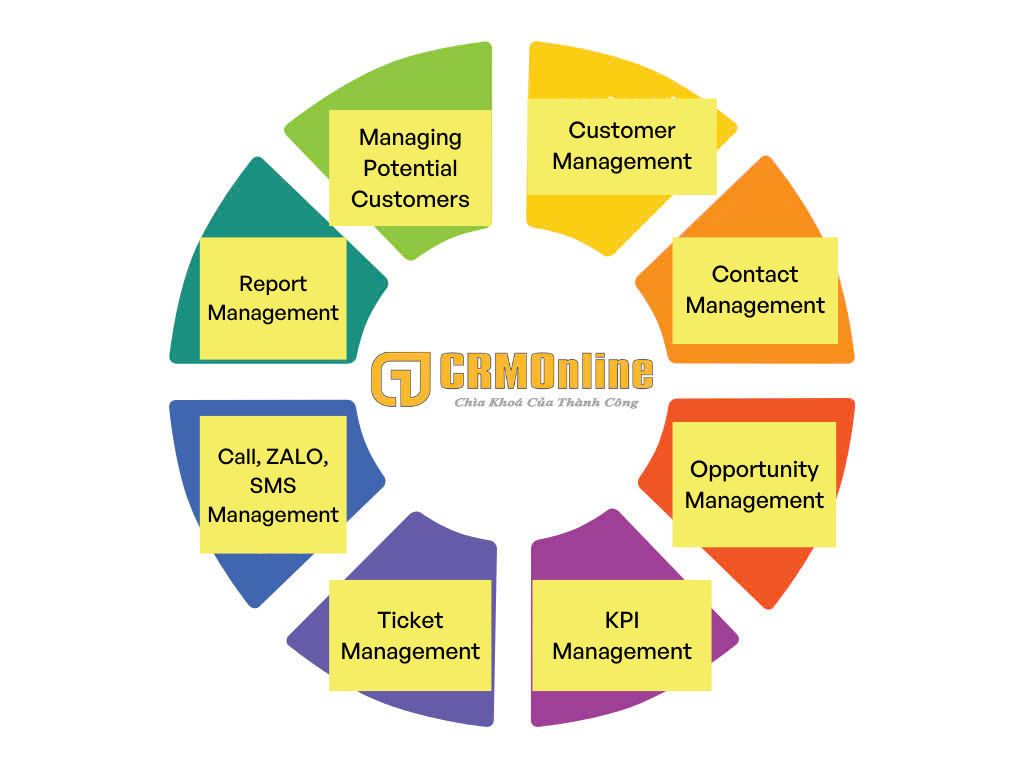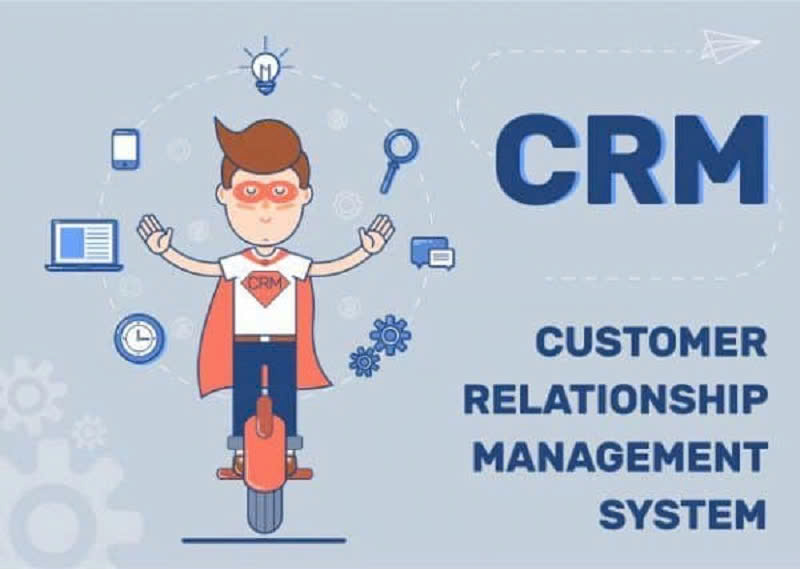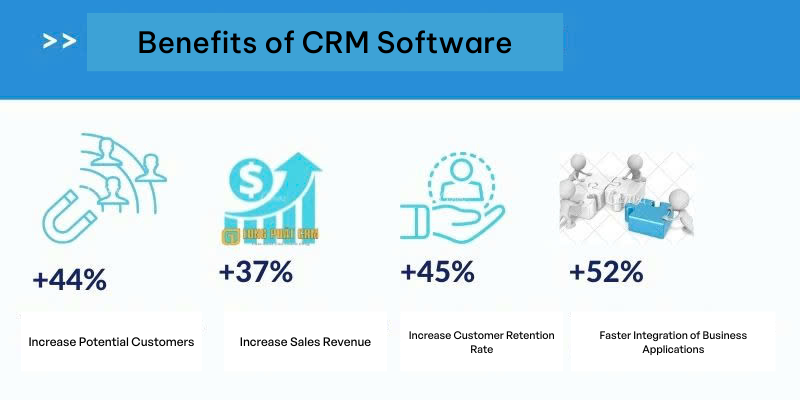What is CRM? | What is Customer Relationship Management?
Customer Relationship Management (CRM) is the combination of business strategy and technology. Businesses use CRM software to manage and analyze customer data. The goal is to find, attract new customers, maintain communication with existing customers, reduce marketing costs, improve customer service relationships, support customer retention, and drive sales growth.

What is the concept of CRM?
CRM stands for Customer Relationship Management. It is the strategy companies use to develop relationships with customers through:
- Researching and understanding customer needs and habits.
- Systematically and effectively reaching out and communicating with customers.
- Managing customer information such as names, phone numbers, addresses, preferences, etc., to better serve them.
- Using software systems to continuously update customer information and track the history of interactions with customers.
With flexible data search functions and reports, businesses can analyze and evaluate potential customer lists, creating appropriate customer care strategies.
Additionally, businesses can address customer issues quickly and effectively, establishing good relationships with customers. This is especially important for the success of any company.

What is the purpose of CRM?
The goal of CRM is to analyze and understand customer attitudes and habits, evaluating the value of each customer segment. With the help of efficient software, businesses can:
- Analyze customer behavior and habits.
- Evaluate different customer segments.
- Offer better services to customers.
- Enhance customer support efficiency.
- Assist sales teams in processing orders quickly.
- Simplify marketing and sales processes.
- Attract new customers.
- Increase revenue.
Why does CRM (Customer Relationship Management) benefit businesses?
Using a CRM system benefits businesses, from small enterprises to large corporations, through:
- Easy access to customer information, purchase history, and interaction history. This helps support teams serve customers better and faster.
- Enabling businesses to easily collect and access customer data, offering better insights through detailed reports and analysis.
- Automating sales funnels and providing frequent customer support.
Why is CRM software important for businesses?
The CRM system provides businesses with a comprehensive and clear view of their customers. Businesses can access customer information anytime and anywhere with an internet connection. The simple software interface allows departments to see customer history, order status, and any pending customer service issues.
Departments also have insights into customers’ preferences, dislikes, and everything related to them. Companies that use CRM solutions gain a better understanding of their sales processes and can evaluate the success of each marketing strategy. This helps businesses make more accurate forecasts and gain a clearer view of potential customer acquisition opportunities.

Can running a business without CRM lead to real losses?
Without CRM, after sales and customer interactions, information such as call history, meetings with potential clients, and other details are often stored in handwritten notes, Excel sheets, or the minds of sales staff. This leads to data loss or mismanagement, missed follow-ups, and the risk of prioritizing customers based on assumptions rather than actual data. The complexity increases when sales staff leave, impacting sales performance.
Without centralized software to manage customer interactions across various channels (phone, email, social media), communication may be lost, resulting in delayed or unsatisfactory responses. Even if all data is collected, analyzing and extracting meaningful insights becomes challenging without proper reporting systems, wasting valuable sales time.
Managers may struggle to monitor employees, leading to poor team accountability and inefficiency, which can result in unsatisfactory outcomes.
Types of CRM Technologies
LONGPHAT is a pioneering provider of customer management software based on SuiteCRM.
1. What is Cloud CRM?
Cloud CRM stores data remotely, and employees can access it anytime and anywhere with an internet connection. It’s quick and easy to deploy. However, if the cloud service provider stops business or is acquired, there may be issues with data loss or security risks.
Benefits of Cloud CRM:
- No need to install software on hundreds or thousands of desktop computers.
- Accessible from anywhere.
- Reduces costs by being priced based on user access and needed features. This is cost-effective and flexible, especially as businesses grow.
2. What is On-Premise CRM?
An on-premise CRM system manages, controls, and maintains a company’s database. With this approach, companies purchase licenses upfront rather than paying yearly subscriptions. The software is hosted on company servers.
However, on-premise systems usually require a long installation process and full integration of company data.
3. What is Open-Source CRM?
Open-source CRM systems allow companies to make changes to the software for free. These systems also enable the integration of social media data for better customer engagement.

Platforms like SuiteCRM, OroCRM, and Bitrix24 offer alternatives to proprietary systems.
4. What is Social CRM?
Social CRM connects to social media platforms like Facebook, Zalo, or e-commerce sites (like Shopee). By integrating customer data from sales or marketing teams with social media insights, businesses gain a more comprehensive view of customers.
5. What is Mobile CRM?
Mobile CRM is a mobile application used by sales and marketing departments. Employees can access customer information on the go, utilizing mobile features like GPS and voice recognition to enhance customer service.
6. What is B2B CRM?
CRM systems for B2B businesses help track sales while allowing companies to address potential issues during the sales process. These systems increase visibility for leads and improve sales efficiency.
—
LONGPHATCRM is a leading provider of CRM software based on SuiteCRM, offering expert consultation and implementation services for businesses in Vietnam.
